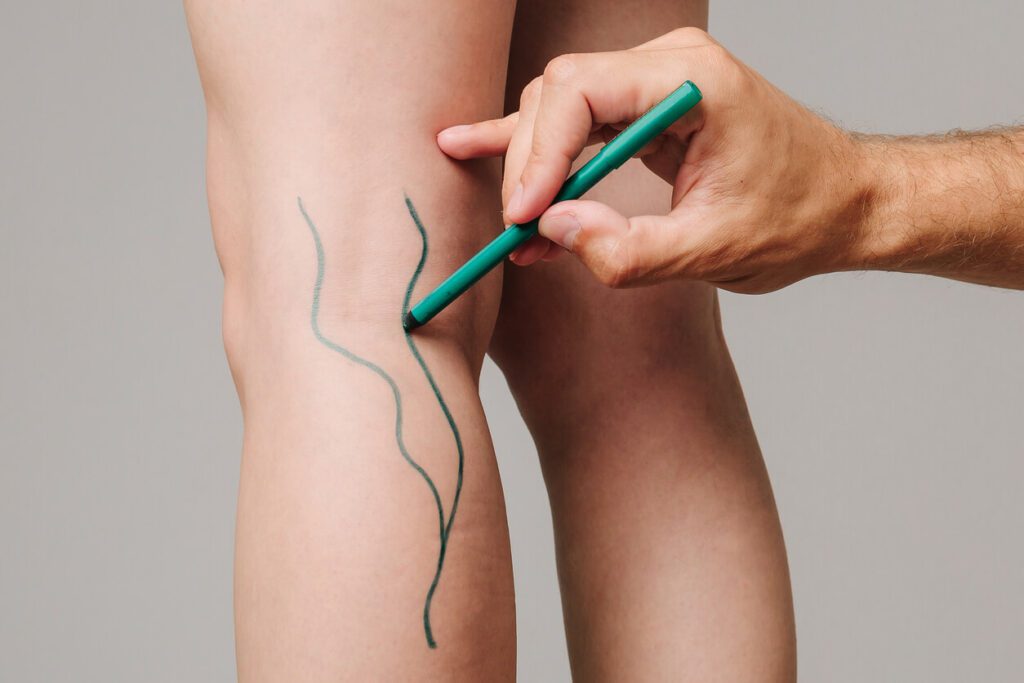
A vascular surgeon plays a critical role in diagnosing and treating conditions that affect blood flow throughout the body. Poor blood flow, known as circulation, can lead to discomfort, delayed healing, and serious health issues if left untreated. However, many ignore the signs of poor circulation and delay seeking medical treatment before it is too late.
Recognizing the warning signs of poor circulation early and seeking expert care can make a significant difference in your overall vascular health. In this blog, we will discuss commonly overlooked signs of poor circulation, answer your most pressing questions about vascular health, and explore how Intercoastal Medical Group’s vascular surgeons can help you stay healthy for the long term.
What are Commonly Overlooked Signs of Poor Circulation?
Many people dismiss symptoms of poor circulation as minor or irrelevant issues that will resolve on their own. However, they often signal underlying vascular conditions that require medical attention:
- Leg pain or cramping when walking
- Numbness or tingling in the extremities
- Slow-healing wounds on the legs or feet
- Swelling in the legs
- Visible varicose veins
If you experience any of these symptoms, it is important to consult a vascular surgeon at your earliest convenience. Here are a few signs of poor circulation that should not be ignored:
1. Leg Pain While Walking
Pain in the legs, particularly while walking or during physical activity, can be a sign of peripheral artery disease (PAD). This condition reduces blood flow to the legs, making simple activities like walking or climbing stairs painful.
Symptoms of PAD include:
- Cramping or aching in the calves, thighs, or hips
- Pain that eases with rest
- Cold or numbness in one or both legs
If these symptoms become frequent, consulting a vascular surgeon is essential.
2. Wounds That Won’t Heal
Another red flag of poor circulation is the presence of wounds or ulcers, especially on the legs or feet, that take an unusually long time to heal. Without sufficient blood flow, the body struggles to deliver necessary nutrients and oxygen to aid the healing process.
Ignoring these wounds can lead to severe complications, including infections and tissue damage.
3. Bulging Varicose Veins
Varicose veins, often seen as twisted, bulging veins under the skin, are not just a cosmetic concern. They can indicate venous insufficiency, where blood pools in the veins instead of returning to the heart. Signs to watch for include:
- Swollen, achy legs
- A burning or throbbing sensation
- Skin discoloration around the veins
These symptoms call for a thorough evaluation by a vascular surgeon to prevent further issues.
What Can I Do to Improve My Circulation?
Maintaining a healthy lifestyle is key to improving circulation. Circulation can be improved with:
- Regular exercise.
- A balanced diet.
- Staying hydrated.
- Avoiding smoking.
Additionally, managing conditions like diabetes, hypertension, and high cholesterol can significantly contribute to better vascular health.
What Treatments are Available for Vascular Conditions?
Treatment options vary depending on the condition and its severity. Common treatments include:
- Lifestyle changes
- Medication management
- Minimally invasive procedures like angioplasty or stenting
- In severe cases, surgery
A vascular surgeon will work with you to determine the best treatment plan for your needs.
Finding a High-Quality Vascular Surgeon
Choosing the right vascular surgeon can feel overwhelming, but focusing on these key factors will guide your decision:
- Credentials and Training: Look for board-certified vascular surgeons with extensive training.
- Modern Treatment Techniques: Seek surgeons who utilize advanced, minimally invasive procedures.
- Comprehensive Care: A multidisciplinary healthcare team ensures you receive support for every aspect of your care.
Why Choose Vascular Care at Intercoastal Medical Group?
At Intercoastal Medical Group, your vascular health is our priority. Our board-certified vascular surgeons provide expert care for a wide range of circulation issues, including varicose veins, peripheral artery disease, and other vascular conditions. With advanced diagnostic tools and leading-edge treatments, we develop care plans that are customized to your health goals and lifestyle.
From your first consultation to ongoing management, we emphasize comfort, clear communication, and evidence-based care—helping you make informed decisions every step of the way.
When to See a Vascular Surgeon
If you’re experiencing symptoms such as leg pain, swelling, persistent wounds, or changes in skin color, it may be time to consult a vascular surgeon. These signs can point to serious circulatory problems that are best treated early. People with risk factors like diabetes, smoking, obesity, or a family history of vascular disease should also consider a proactive vascular health check.
Our experienced team in Bradenton and Sarasota is here to help you identify and manage vascular issues before they progress. Call your nearest Intercoastal Medical Group location or request an appointment online.
The Role of Your Primary Care Physician in Vascular Health
Your primary care physician (PCP) plays a vital role in monitoring and protecting your vascular health. They perform regular checkups, watch for early warning signs of circulatory problems, and help you stay on track with treatment plans.
Whether it’s adjusting medications, supporting lifestyle changes, or coordinating care with your vascular specialist, your PCP serves as a trusted partner in your long-term health.
Recognizing the signs of poor circulation and seeking care from a vascular surgeon early can prevent complications and improve your health. Call the Intercoastal Medical Group office nearest you today or request an appointment online to consult with one of our vascular surgeons. We are committed to delivering exceptional vascular care for your unique needs.

